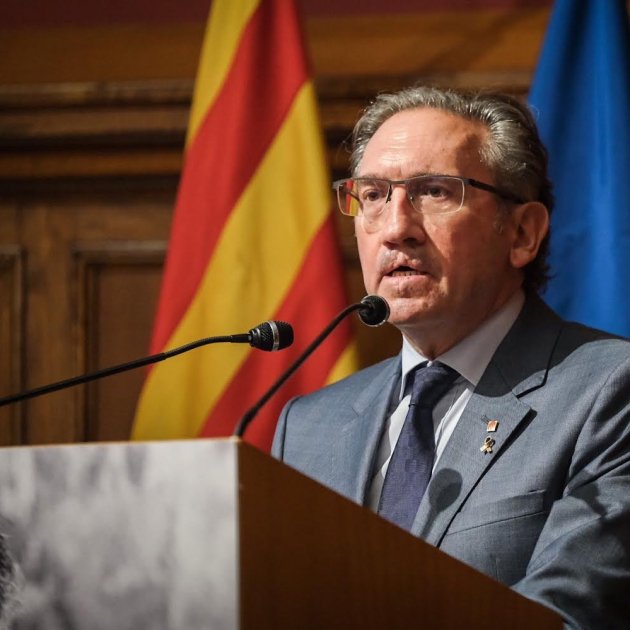Catalonia's fiscal deficit continues to grow. According to calculations by the Catalan economy ministry, the difference between the expenditure that the Spanish state dedicates to Catalonia and the income that Catalans contribute to the state's coffers, amounts to 20.196 billion euros, that is to say, 8.5% of the Catalan GDP. The balances have been calculated based on data from 2019, the last pre-pandemic year. These figures represent an increase of 0.5% in relation to 2016, the last year in which the state provided the necessary data to calculate the balances. That year the fiscal deficit stood at 17.049 billion euros. According to the report presented today, in 2019 Catalonia contributed 19.6% of Spain's total fiscal income and received 13.4% in investment.
The Catalan minister of economy, Jaume Giró, denounced that the persistence of this fiscal deficit makes it clear that the economic ill-treatment that Catalonia receives from the state is "systematic, endemic and disloyal". It is systematic, he explained, because "it is not a one-off issue, but it affects the country's structural ability to act politically and the possibilities for progress and well-being"; it is endemic because the "indicators" of this mistreatment can be found constantly over the years, regardless of who governs in Spain - "it's been more than 35 years since we Catalans have practically been paying a tithe to Spain and we don't really know in exchange for what", he reprimanded; and it is disloyal, "and this is the most serious aspect", said the minister, because the financing system, which should have the aspiration to be a fair mechanism, "is, in fact, becoming a procedure of political control to subdue a country that wants to make its own voice heard." "What is clear is that the first condition of a country's self-government is to be able to dispose of the resources it generates and the first indication of subjugating it is to take these resources away," he stressed.
Democratic deficit
The minister recalled that the data presented by the Catalan government today is an approximation due to the fact that the Spanish authorities have not provided the necessary information to draw up the balance sheets, and he criticized that the Spanish treasury minister, Maria Jesús Montero, argued to deny access to the data on the grounds that the only thing achieved by calculating fiscal balances is squabbling between territories. According to Giró, this demonstrates "once again the democratic deficit of the state and its lack of transparency, and for this reason he called on the Catalan Socialist Party to also demand this data.
To put this amount in context, the minister emphasized that this fiscal deficit of 20.2 billion euros represents 53% of the Catalan government's budget; it is equivalent to this year's budgets for health, education and social rights; it is 167 times the budget of Catalonia's FGC railway system; and it is 24 times the size of the public budget currently dedicated to research and development.
Giró says that if Catalonia had access to the taxes that are collected in its territory, as Navarra and the Basque Country do, the Generalitat could invest almost 2,700 euros more per year to every person living in Catalonia. "Instead of the 5,071 euros allocated to each Catalan today, we could allocate almost 7,800", he explained. By contrast, this economic grievance forces us to incur a budget deficit and to increase our indebtedness to maintain our level of services, and increases the mortgaging of the well-being of future generations.
"This fiscal asphyxiation is a way of limiting our capacity for self-governance and also a way of restricting the real possibilities of taking political action in Catalonia", criticized the minister, who warned that when there is no room for manoeuvre, the differences between political options become blurred, and therefore "a fair fiscal regime is also a fiscal regime that favours democracy, and conversely, an unfair fiscal deficit weakens it".
New financing system
When asked if he would participate in the negotiation of a new Spanish system for financing the autonomous communities, he admitted that he would be open to talks if a negotiation were proposed "with a will to reach a real financing agreement". "From my point of view, managing the autonomous system as well as possible does not mean not defending the country's independence and what we have found today is an autonomous community government. The country always has to move forward and if we can recover some of the euros that evaporate every year that should come to us in Catalonia, that would be worth trying", he argued, although he recalled that today no-one has announced a process of "opening up the can of worms of a new financing model" and, therefore, he could not specify anything more, given that he doubted that this would happen in this legislature.
